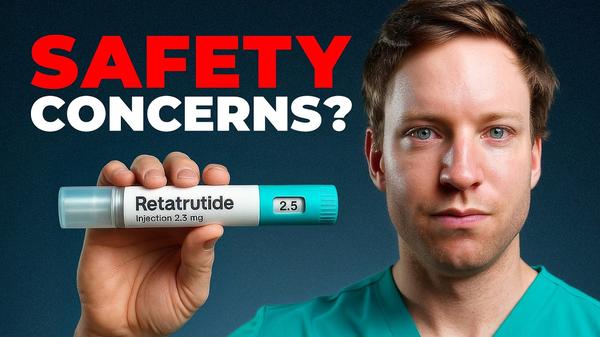
Doctors Won't Tell You This! - Dark Truth About Antidepressants & How Big Pharma Fooled Everyone
Rangan Chatterjee
Jun 11, 2025
Mindsip insights from this episode:
Navigate final dose reduction carefully when tapering off antidepressants
When coming off antidepressants, the final dose reduction (e.g., from 5mg to zero) is the most difficult and has the largest withdrawal effect due to a hyperbolic relationship between the drug dose and its effect on the brain.
Recognize potential for permanent sexual dysfunction from SSRIs
SSRIs can cause persistent sexual dysfunction, including genital anesthesia, that may continue for years even after you stop taking the medication.
Consider non-medical approaches for better depression outcomes
Long-term studies show that people with depression who have not had medical treatment often have better outcomes than those who have.
Recognize pharma's role in redefining depression in Japan
In the 1990s, the pharmaceutical industry successfully ran a campaign to introduce the medical concept of depression to Japan, which previously saw it as a meaningful life reaction, in order to create a new market for antidepressants.
Challenge belief in pills to foster self-recovery strategies
Giving someone a placebo tablet may provide a temporary mood lift, but in the long run, the belief that they need a pill to get better might undermine their ability to develop their own coping strategies.
Leverage belief in treatment to enhance mood improvement
The belief that you are taking the real drug, often guessed due to side effects, has a larger impact on mood improvement than the actual pharmacological effect of the antidepressant itself.
Question antidepressant efficacy against placebo in clinical trials
In clinical trials, the difference between an antidepressant and a placebo is only two points on a 54-point depression scale, a margin not considered clinically significant.
Recognize emotional numbing as a side effect of antidepressants
A common side effect of SSRIs is emotional numbing, where you may not feel as sad but also lose the ability to feel happy or cry.
Question the 'chemical imbalance' theory in depression marketing
The 'chemical imbalance' theory of depression was not a proven scientific fact but a theory from the 1960s that was heavily promoted by the pharmaceutical industry in the 1990s to market their new SSRI drugs.
More from
Rangan Chatterjee
Neuroscientist: If You’re Feeling THIS, You’ve Lost Touch With Your True Self
Neuroscientist: If You Feel THIS, You're Living the Wrong Life (Unlock The One You're Meant For)
The 5-Minute Morning Habit That Transformed My Health, Happiness & Marriage
If You Struggle to Sleep, Start Doing THIS Every Morning
The Only 3 Rules You Need to End Cravings & Reset Your Body














